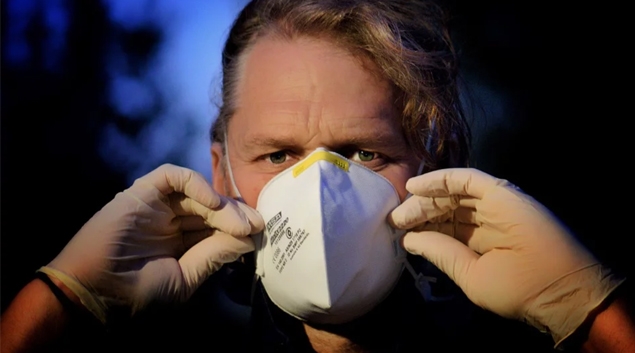
The vast majority of U.S. hospitals and health systems — 86%, all told — are concerned about their supply of face masks and other personal protective equipment as the global spread of the COVID-19 coronavirus strains the supply chain.
According to purchasing data in Premier’s survey, hospitals and health systems across the country typically buy 22 million N95 face masks a year. But during the months of January and February, demand for N95s surged, up 400% and 585%, respectively, largely fueled by a heavy flu season and forward buying in anticipation of a coronavirus outbreak in the U.S.
The levels of demand suggest a minimum consumption rate of 56 million masks in 2020, nearly a three-fold increase in demand when compared to a typical year.
WHAT’S THE IMPACT
According to data collected by Premier from distributors, most healthcare facilities currently receive just 44% of the N95s and 82% of the surgical masks they order. Domestic and near-shore suppliers of PPE have increased production and are on track to produce an estimated 60 million masks this year, but reaching that production level will take between 30 and 60 days.
Because of the domestic backorders and the sharp reduction of imported goods, 36% of respondents are preparing for broad-scale PPE shortages, and 54% have initiated PPE conservation protocols to stretch the supplies on hand. And 46% of respondents say they’re worried about how long current supplies will last.
About 80 percent of all PPE manufactured globally comes from Asia, where nations such as China, Taiwan, Thailand, India and South Korea have all stopped exporting products, a situation expected to continue through April, if not longer. While masks are expected to be in short supply for some time, Premier’s S2S Global direct sourcing company is ramping up inventory on hand for disposable protective apparel such as isolation gowns and gloves in anticipation of increased member demand.
To help members understand the latest state of the supply chain, Premier continues to maintain a members-only disaster response online community, posting daily updates with guidelines and recommendations to best manage and conserve product.
THE LARGER TREND
The coronavirus focus to date has largely been on the immediate public health impact and the toll it’s taken on individuals. But several weeks in, the outbreak could potentially disrupt the drug supply and business of both major and minor drug manufacturers.
This is because a high percentage of drug ingredients are sourced from China, the epicenter of the coronavirus. This has raised some important intermediate- and long-term strategic business considerations that need to be addressed.
Meanwhile, spread of the coronavirus in China and beyond would have mixed credit implications for U.S. healthcare companies, Moody’s Investors Service said in a recent report.
The outbreak could negatively affect U.S.-based medical device and pharmaceutical companies that manufacture or source products in China and ultimately increase demand for hospital services, medical products and devices as well as certain drugs.
ON THE RECORD
Premier President Michael J. Alkire said, “We have provided these survey results to the U.S. Food and Drug Administration and the Centers for Disease Control and Prevention to help them better understand the current situation and prepare our nation’s response to coronavirus. We also continue to provide daily updates to our members, as well as assistance in obtaining necessary supplies on an as-needed basis. Because this situation is rapidly evolving, we encourage all hospitals and health systems to initiate conservation protocols to protect stock on hand and refrain from panic-buying that can further strain the supply chain.”
“Many PPE supplies are heavily backordered and global shortages exist for specific products such as N95 masks,” said David A. Hargraves, Premier’s senior vice president of supply chain services. “So far, our members, with our support, have been able to work with manufacturers and distributors to mitigate many issues. But supply is unquestionably strained and health systems are going to extraordinary lengths to provide essential healthcare for their communities. Our data shows Premier members have at least two weeks of supply on hand, but that’s only if we assume current utilization rates. That number will quickly balloon if we have a domestic outbreak of coronavirus, as the Department of Health and Human Services says as many as 300 million N95 masks will be required for healthcare workers.”
Twitter: @JELagasse
Email the writer: jeff.lagasse@himssmedia.com
